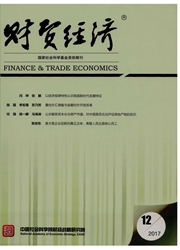

 中文摘要:
中文摘要:
社会福利体系是影响经济可持续发展和社会安定的重要因素。政府在社会福利体系中起主导作用,但存在福利支出的适度性问题,福利过度或不足均不利于经济社会发展。本文对中国与OECD的社会福利体系做了比较,并选取美国等OECD七国和中国1980—2007年的数据作为样本开展实证分析。研允发现:(1)结合发达国家的经验,现阶段我国的社会福利总支出、养老保险支出和健康福利支出偏低;(2)但收入维持支出(即最低生活保障支出)却超前于经济发展水平和政府财力;(3)失业福利支出是否适度,不同分析方法得出了不同结论,有待进一步分析。
 英文摘要:
英文摘要:
Social welfare system is essential for a country's economic sustainable development and social stability. Although the government plays a leading role in social welfare system, there is an issue of appropriate public expenditures in social welfare plans. In other words, the development of economy and society will be hurt if social welfare is oversupplied or undersupplied by the government. This paper compares the social welfare system of China with that of OECD countries, and then empirically analyzes whether China~ s public expenditures in social welfare plans are appropriate or not, based on the data of seven OECD countries and China from the year 1980 to 2007. Main findings are as follows. 1) with regard to seven OECD countries experiences, China ' s total social welfare, public pensions and public health care are undersupplied. 2) China's income maintenance plans (or Subsistence Security System) are oversupplied. 3) no conclusive findings are found for unemployment welfare expenditures and further studies are needed.
 同期刊论文项目
同期刊论文项目
 同项目期刊论文
同项目期刊论文
 期刊信息
期刊信息
